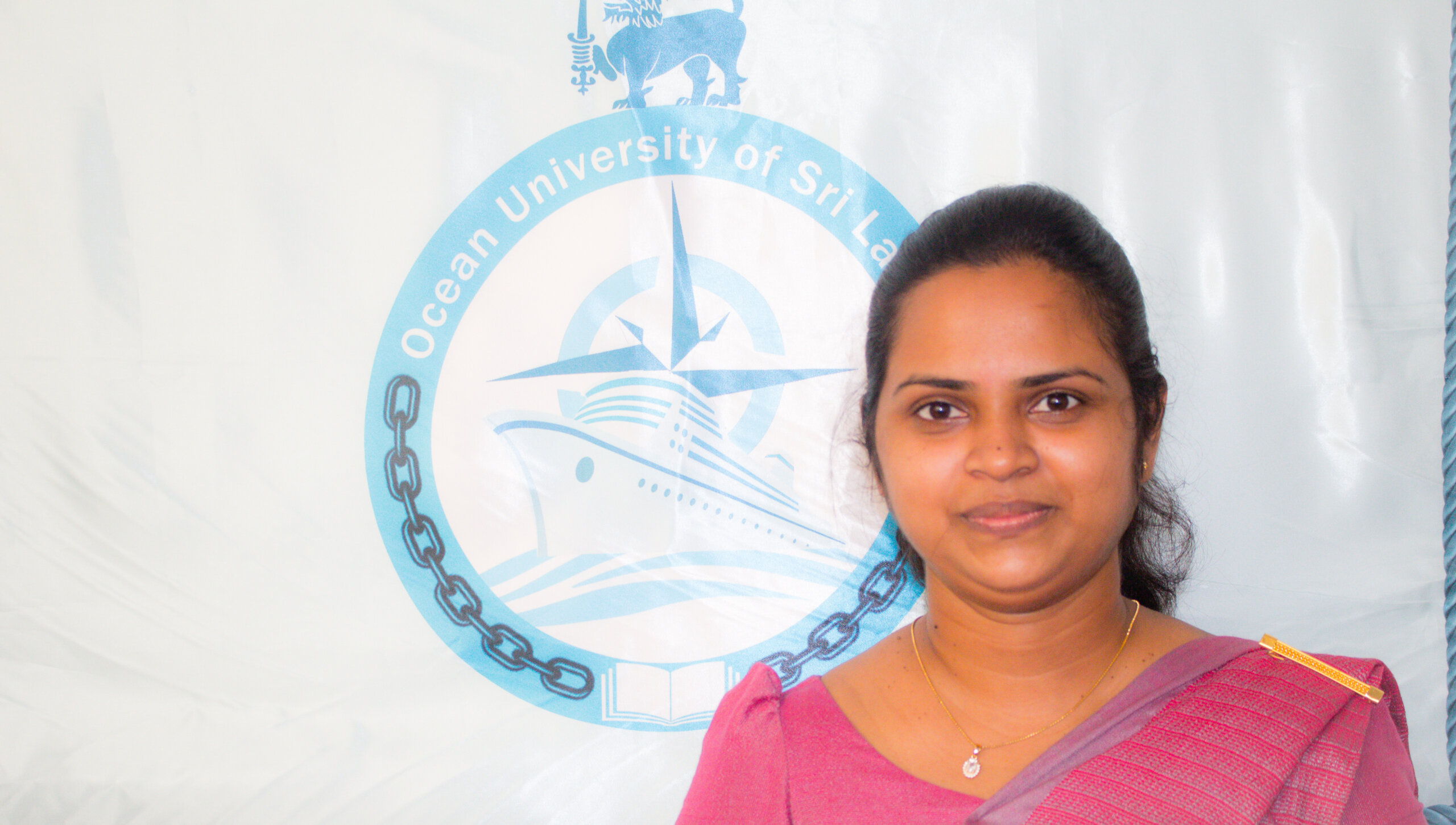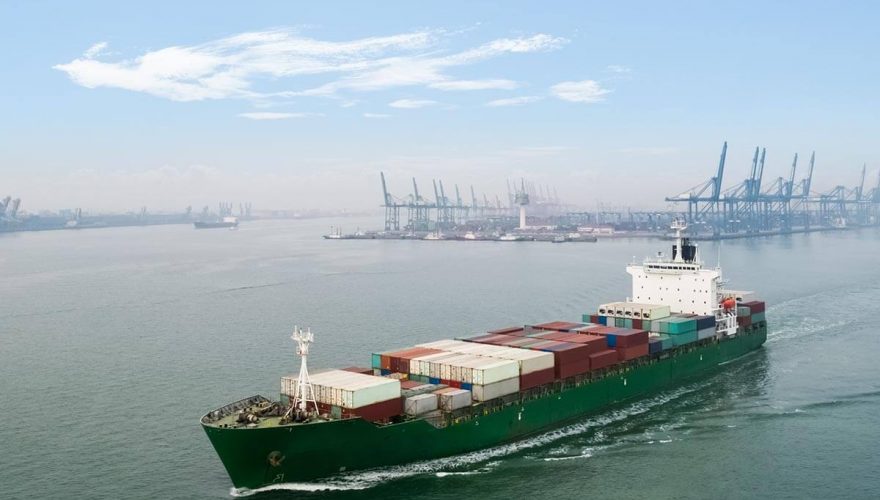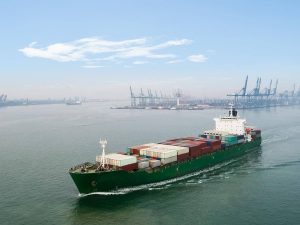- About the course
- Entry Requirements
- Course structure
- Modules
- Learning and Assessment
- Career Opportunities
- Staff
- Publications
About the course
The Ocean University of Sri Lanka has initiated the first-ever degree program dedicated to Maritime Transportation and Logistics in Sri Lanka to address the national need of qualified professionals to gear the Sri Lankan Maritime Industry.
The degree program intends to provide the students with the required knowledge, skills and attitudes to utilize the limited resources in the Maritime and Logistics industry and to drive the industry to the next level through efficient, effective and innovative solutions.
The curriculum of the degree program is designed with the consultation of senior academics and practitioners in the industry to prepare students to take leadership roles in the sectors of shipping, port operations, freight forwarding, logistics services, supply chain management, manufacturing etc .
Study areas in the course
The degree program consists of Maritime Transportation, Logistics and Supply Chain Management, General Management, Maritime Law, Finance Management, Economics modules in addition to supporting modules of Business Communication, Basic Mathematics, Business Statistics, and Business Etiquette.
Program Outcomes
- Apply and demonstrate broad knowledge of management, maritime transport and logistics theories to the analysis of complex Maritime Transportation and logistics problems.
- Assess legal and environmental issues related to Maritime and Logistics industry.
- Apply broad knowledge of sustainable development concepts and business practices required for dealing with contemporary issues related to maritime transportation and logistics industries.
- Contribute in creation of new knowledge, through carrying out research, for identifying and filling out the theoretical gaps in the field of maritime transportation and logistics.
- Capable of working efficiently with the others in the community, through; effective communication in both oral and in writing; public relations and leadership skills.
- Analyze and critically evaluate arguments and issues pertaining to the Maritime transport and Logistics management discipline.
- Apply research skills to develop solutions to practical issues pertaining to maritime transport and logistics management.
- Ability to handle dilemmas in professional life ethically and successfully.
- Willing to appreciate the value of a broad-based Maritime and Logistics education, and engage in continuous professional development through lifelong learning, higher education, and memberships in professional bodies.
- Understand the ethical and professional responsibilities of the managers and professionals in the maritime and logistics fields.
- Recognize the impact of their decisions & resolutions on the economy, industry, and society.
- Sustain a lifelong learning experience by updating themselves with emerging trends in the Maritime and Logistics industries.
Advanced-levels
Applicants must have passed the G.C.E. advanced level examination with minimum passes in a single attempt in any stream.
Applications are called annually through the Ocean University website and other Medias.
Aptitude Test
Applicants who have fulfilled the minimum requirement will be called for an aptitude test. Based on the aptitude test results and performance at the interview, students will be selected for the B.Sc. in Maritime Transportation Management and Logistics.
Selection Criteria for Honours Degree >>>
Course structure
The first year of the degree program is designed to provide the Fundamental knowledge in Shipping, Logistics, Management, Transport Geography, Economics, Marketing, Sea Ports, Sea Freight Management, Legal Principles, Organizational Behavior, General English and Basic Mathematics.
The second year develops on the basis of improving knowledge in specialized areas of Port Operations, Shipping Law, Marine Insurance, Business Statistics, Maritime Economics, Procurement Management, Air Freight Management, Inventory and Warehouse Management, Financial Management, Operations Management.
The third year is designed to enhance the knowledge, improve managerial and soft skills with the modules of Port Planning, Law of the Sea, Marine Environmental Management, Chartering and Ship Brokering, Quality Management, Customer Relationship Management, E-commerce and Governance, Costing and Management Accounting, Operations Research, Sustainable Supply Chain Management and Advanced Business Communication.
The final year of the degree program builds with the core objective of preparing students to identify strategic issues in different fields related to Maritime Transportation Management and Logistics. Strategic Management, Strategic Logistics Management, Strategic Transportation, Research Methodology, Industrial Training and Research Project are to be covered in the final year of the degree program.
Year 1Year 2Year 3Year 4
Semester 1
MTL1013 - Transport Geography
This course is developed to make students understand and apply the study of geography to interpret the man-space relationship in the context of maritime transport management and logistics operations identifying physical, environmental, demographic, cultural and political factors with special focus to maritime transportation.
MTL1023 - Introduction to Shipping
Aim of this course is to provide students with the knowledge to understand the basic structure of ships, their behavior and onboard operations as part of the sea transportation in the international trade.
MTL1033 - Principles of Economics
In this course, students will be introduced to the basic concepts of Micro and Macroeconomics. Students are encouraged all to keep up on current economic events. An Economist is an excellent source of information.
MTL1042 - Principles of Marketing
To introduce the art and science of choosing target markets and getting, keeping, and growing customers through creating, delivering, and communicating superior customer value. Marketing management seeks to meet organizational objectives by effectively satisfying customers in a dynamic environment and provides an overview of marketing processes and marketing principles, and provides students with the opportunity to apply the key concepts to practical business situations.
MTL1052 - Principles of Management
To provide learners with an opportunity to identify and apply various theories/concepts in management. Utilizing the case method and self-assessment exercises, students will determine their own strengths and weaknesses as it relates to managing the work places effectively. Through the enhancement of managerial skills, knowledge and competencies, students will be able to reproduce them to become responsible and excellent managers in their respective services.
MTL1062 - Introduction to Logistics Management
This course is designed to acquaint students with the knowledge on the Background of Logistics Management, Warehousing, Inventory Management, Just in Time Systems, Transportation, Outsourcing, Reverse Logistics, Humanitarian Logistics and Contemporary Issues in Logistics Management.
MTL1073 - General English
Content
MTL1082 - Basic Mathematics
To provide the understanding on the fundamental concepts of mathematics and statistics.
Semester 2
MTL2013 - International Trade & Finance
This unit will cover fundamental theories behind the development of international trade and finance. In particular the content deal with practical aspects of trade, both exporting and importing, and the institutional environment within with global trade occur.
MTL2022 - Introduction to Sea Ports
To provide the understanding of sea ports and how they are managed, to know modern port infrastructure, superstructure & facilities, to understand port ownership, administration, business, planning, human resources, marketing, safety, security, tariff, legal aspects, port performance indicators and to understand Sri Lanka Ports & Port Projects.
MTL2032 - Sea Freight Management
Aim of this course is to provide students with the knowledge to understand the importance of Sea Transportation in the International Trade and, how cargo/freight handled and managed while they are delivered from exporter to importer by ships.
MTL2042 - Organizational Behavior
To gain a solid understanding of human behavior in the workplace from an individual, group, and organizational perspective, to obtain frameworks and tools to effectively analyze and approach various organizational situations and to integrate course materials with your own workplace experiences, to reflect upon your own beliefs, assumptions, and behaviors with respect to how individuals, groups, and organizations act in order to expand your options of approaches and increase your own effectiveness.
MTL2053 - Business Mathematics
To gain understanding on the fundamental concepts of mathematics and statistics and its application in business decision making.
MTL2062 - Information Technology for Transport Management and Logistics
The main aim of this course is to introduce the student with the concept and application of information technology for transportation management and logistics.
MTL2073 - Legal Principles
The aim is to introduce a student to the subject of Law. It would give the student a basic knowledge of the subject of law including legal principles. Based on this foundation a student would be better equipped and able to understand and study the subject of Shipping Law which is a specialized area of study.
MTL2082 - Survey Methods
Introduction to survey methods, types of data, analysis techniques and applications of survey for problem solving in the field of transport and logistics management.
Semester 3
MTL3013 - Shipping Law
The aim of the course is to ensure that the student is knowledgeable in the area of Shipping Law, including the laws in respect of carriage of goods by sea, Merchant Ships, Training and Certification of Sea Farers and Manning of Merchant Ships.
MTL3023 - Port Operation
Aim of this course is to provide students with the knowledge: navigation, cargo handling & value added port operations ,facilities, planning, operation, equipment & safety and security.
MTL3032- Managerial Economics
Managerial Economics is concerned with the application of economic principles to key management decisions within organizations. Managerial Economics is fundamentally a unique way of thinking about problems, issues and decisions that managers face in each of the functional areas of their organization. This unique way of thinking stresses the importance of incentives as determinants of human behavior and performance, and emphasizes the consideration of costs and benefits as an efficient method for reaching economic decisions. The course shows how economic principles can be applied to company decision making. The emphasis is on practical problems that may face anyone in a management position.
MTL3042 - Port Agency Functions
This course is designed to provide students with the knowledge and skills which require carrying out duties and tasks of a Ship and Port Agent effectively.
MTL3052 - Marine Insurance
To build a person with confidence to handle insurance mechanism while engaged in international trade, logistic operations and/or liability aspect providing them in-depth knowledge regarding every aspect of Marine Insurance together with the international conventions and practice.
MTL3063 - Business Statistics
This course familiarizes students with the basic concepts of business statistics and provides a comprehensive overview of its scope and limitations. The primary objective of this course is to provide an introduction to the subject of statistics and to enhance the analytical abilities of business undergraduate students. To achieve this goal, this course focuses on building statistical reasoning while strongly emphasizing the application of statistical concepts to business situations, as well as to common occurrences in daily life.
MTL3072 - Customs and Boarder Management
To provide a comprehensive knowledge in concepts and principals of Customs and other border management functions which directly impact the efficiency and effectiveness of logistics and transport management.
Semester 4
MTL4012 - Air Freight Management
To gain understanding on the fundamentals of air cargo movement and apply them in real life operations.
MTL4023 - Procurement Management
The course focuses on providing the students with a sound knowledge of the theoretical framework and imparting knowledge and confidence required to perform procurement management functions, procurement procedures and processes, managing risk in procurement, performance measurement and control in procurement.
MTL4032 - Financial Accounting
The principal aim of this module is to introduce students to the main financial statements produced by businesses worldwide. The systems and techniques required by businesses to produce these statements, and the core concepts underpinning these statements are covered. Further the subject expect to develop, in learners, knowledge and understanding of the underlying principles and concepts of Financial Accounting and to enable them to apply accounting standards and the theoretical framework in preparation of financial statements of different type of entities and to analyze and interpret those financial statements.
MTL4043 - Operations Management
This module helps students to make important decisions about product creation, development, production and distribution while focusing on efficiency and balancing supply and demand.
MTL4053 - Inventory & Warehouse Mgt.
This course delivers the essential tools and knowledge to run efficient operations in warehouse and inventory functions.
MTL4063 - Maritime Economics
This unit will explain students with the key economic concepts and theories relevant to the operations of organizations in the maritime industries. In addition, the unit guides students to evaluate the impact of worldwide macroeconomic developments on the shipping and port industry.
MTL4072 - Inland Freight Management
To gain understanding on the fundamentals of surface cargo transportation and gather knowledge and required skills pertaining to efficient goods movement from origin to destination.
Semester 5
MTL5013 - E commerce and Governance
The growth of the Internet and e–commerce continues to have a tremendous influence on global business. Organizations of all types and sizes are rethinking their strategies and how they run their operations. This course aims to guide the students to explore the realities and implications of e-commerce from a supply chain/logistics perspective. The course introduces students to the concepts, technologies, applications, issues and how to overcome those issues related to e-commerce as a foundation to better understand the impact of e-commerce in their core area of study.
MTL5023 - Customer Relationship Management
This course focuses on customer relationship management (CRM) and the customer-driven, market-based management practices that enable a business to attract, satisfy, and retain customers profitably. Students will learn to properly use CRM to more accurately evaluate the market place, evaluate competitors and their positioning, and determine the lifetime value of the customer. The course will focus on techniques to track market conditions, market performance, and competition and develop superior customer solutions via benchmarking, customer analysis and value creation.
MTL5033 - Quality Management
This subject addresses the quality issues from the supply chain perspective. It covers the following topics: the quality imperative for the open economy; concepts of quality; quality in service and manufacturing organisations; quality control and assurance; quality costs; tools of TQM; quality function deployment; six sigma implementation; principles of Taguchi methods and robust quality; international quality assurance standards; HRM in quality; case studies in quality management
MTL5043 - Costing and Management Accounting
To have a overall understanding of how the accounting practices used for and the control of material, labor, and overhead costs. Further to study of Job-order, process cost and standard cost systems.
MTL5052 - Chartering & Ship Broking
This module provides students a thorough understanding of ship chartering. It places emphasis on the theoretical and practical understanding of the components and the terminology of chartering and ship broking.
MTL5062 - Port Planning
Aim of this course is to provide students with the knowledge to appreciate Port Planning including modification of existing port facilities, designing a new green field ports, to Plan different cargo handling terminals , to understand Port and shipping policies of the government, to identify best location for a port, to appreciate port ownership and administration, port demand, port supply, capacity planning, to be familiar with port investments, global port & terminal investors/ operators, general port facility designs.
Semester 6
MTL6012 - Advanced Business Communication
This module enables students gain skills to function in English at a work place and to motivate students to use English in daily life.
MTL6023 - Law of the Sea
The aim of the course is to ensure that a student is knowledgeable in the area of Law of the Sea with emphasis being placed on laws having a bearing on navigation and shipping.
MTL6033 - Marine Environmental Management
The overall goal of this course is to provide students with an understanding of marine and coastal environment, how it could be polluted and what measures should be taken for the conservation of marine environment.
MTL6043 - Financial Management
Purpose of this module is to provide students with an understanding of how firms acquire resources, and allocate them among the firm’s present and potential activities and projects. Our perspective is that of the financial manager who must determine the best method for finding and allocating capital to increase the wealth of the firm’s shareholders. The objective of this course is, therefore, to equip the corporate manager with the tools and techniques available to create value from the firms financing and investment decisions. Concepts such as corporate objectives, business risk, financial risk and the valuation of financial assets are studied. Special emphasis is placed on long-term managerial policies and the relevance of financial management.
MTL6053 - Operations Research
This module provides students knowledge of essential tools of operations research to facilitate them to make managerial decisions scientifically.
MTL6063 - Sustainable Supply Chain Management
This module introduces operational aspects of sustainable supply chains. Focuses on analyzing the implications of environmental considerations in logistics decisions.
Semester 7
MTL7013 - Research Methodology
The module aims to provide in-depth knowledge of research methodology in general including how research is being done, and to put that knowledge into practice. Students learn how to apply a great number of Statistical techniques, draw conclusions from those, and determine what statistical technique would be suitable for a given dataset and/or research question.
MTL7023 - Strategic Management
This module aims to develop an analytical and strategic perspective of business, by giving an integrative view of the business organization while understanding the external factors which influence internal decision making. Students will use theoretical models and frameworks as an aid to analysis and problem solving, and develop both applied and academic research skills to evaluate evidence which may support their conclusions.
MTL7033 - Strategic Logistics Management
To provide an overview of logistics management in organizations based on the concept of supply chain management (SCM). From the knowledge of the logistical implications in the functions of the organization explore traditional fields of logistics by focusing on the integration of different logistics and supply chain operations including analysis of different logistics strategies and basic tools commonly used for design and management. It also allow student to study the technologies used to identify and monitor products in the supply chain.
MTL7043 - Strategic Transport Management
The module aims to provide in-depth knowledge of research methodology in general including how research is being done, and to put that knowledge into practice. Students learn how to apply a great number of Statistical techniques, draw conclusions from those, and determine what statistical technique would be suitable for a given dataset and/or research question.
MTL7053 - Enterprise Resource Planning
This module aims to develop an analytical and strategic perspective of business, by giving an integrative view of the business organization while understanding the external factors which influence internal decision making. Students will use theoretical models and frameworks as an aid to analysis and problem solving, and develop both applied and academic research skills to evaluate evidence which may support their conclusions.
MTL7061 - Business Etiquettes
Content
Semester 8
MTL8016 - Industrial Training
It comprises a six month on the job training in any organization related to Maritime or Logistics industries. Students carry out the training under the supervision of the National Apprentice and Industrial Training Authority (NAITA). Industrial training is evaluated based on the evaluation criteria set by the NAITA and the module is assessed through a training report and VIVA which determine the successful completion of the module.
MTL8026 - Research Dissertation
It provides students with the opportunity to test their learning to display their subject knowledge and methodological skills, and to explore in detail, a topic that interests them. The aim is to demonstrate students’ proficiency in academic research an appropriate academic communication, both written and oral.
Learning and Assessments
B.Sc. (Hons) MTML degree program is comprised of 136 credits including GPA and NGPA modules, six months Industrial Training and Research Dissertation.
All modules are assessed by continuous assessments followed by a final examination.
Learning activities
- Class room Lectures, Tutorials
- Presentations
- Case Discussions
- Field Visits
Career Opportunities
The BSc (Hons) MTML degree programme consists of three major components as general management, maritime transport, and logistics which provides the opportunity for graduates to be employed in a vast range of disciplines from specialised sectors such as maritime transport or logistics to general management positions of any other organization.
-
Sea Ports & Terminals
-
Shipping Companies
-
Freight Forwarding Companies
-
Exporting and Importing Companies
-
Logistics Service Provider Companies
-
Enterprise Software Solution Provider Companies
-
Manufacturing & Production Companies
-
Research & Consulting Organizations
-
Regulation & Planning Institutions
-
Infrastructure Development Companies
-
Warehousing & Inventory Supply Companies
-
Banks and other Financial Service Providers
-
Academic and Educational Organizations
-
Any state or private sector institution in management capacity
Head Of Department
Ms. H.D.M.M. Pussella
Head, Senior Lecturer Grade II
Department of Maritime Transportation Management and Logistics
Phone: +94(0)71 0980067
Lecturers
Mr. T.P.G.N.A. De Alwis
Senior Lecturer Grade II
Maritime Transportation Management and Logistics
Phone: +94(0)77 4906846
Ms. S.C Ganepola
Lecturer
Maritime Transportation Management and Logistics
Phone: +94(0)71 6816129
Ms. W.P.W Anjalika
Lecturer
Maritime Transportation Management and Logistics
Phone: +94(0)71 4092515
Demonstrator
Ms. D.M.H.P. Senarathne
Demonstrator
Department of Maritime Transportation Management and Logistics













